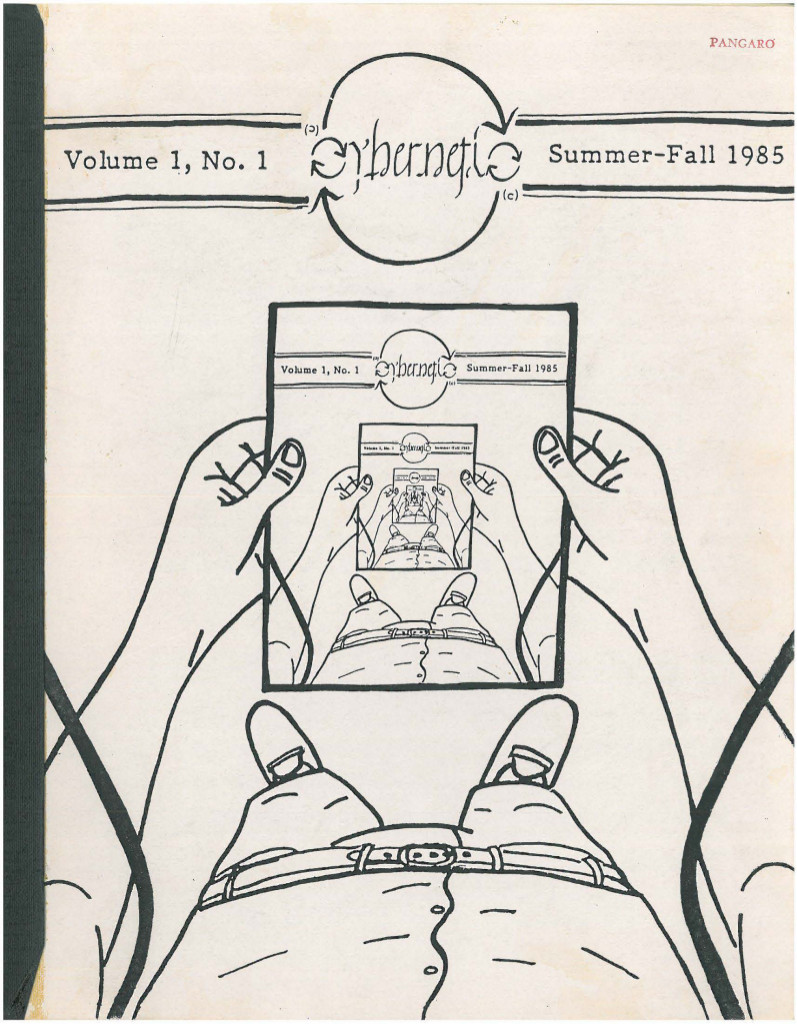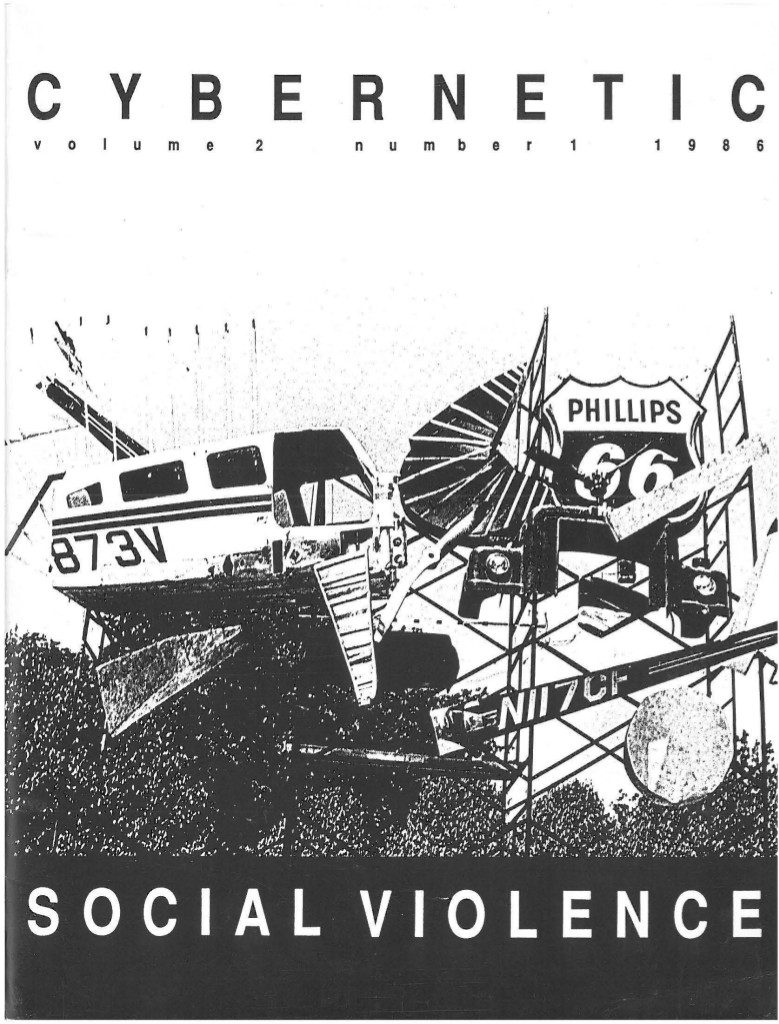Cybernetic, 1-2 (1985-1986)
Filed under magazine | Tags: · autopoiesis, biology, cognition, computing, cybernetics, language, machine, mathematics


Editors: Gordon Pask, Humberto Maturana, Heinz von Foerster, Terry Winograd, Paul Trachtman, Larry Richards
Publisher The American Society for Cybernetics
ISSN 0883-4202
PDF (Vol 1, No 1, Summer-Fall 1985, 148 pp)
PDF (Vol 2, No 1: “Social Violence”, 1986, 82 pp)
Pamela M. Lee: Chronophobia: On Time in the Art of the 1960s (2004)
Filed under book | Tags: · art, art history, autopoiesis, kinetic art, systems theory, technology, time

“In the 1960s art fell out of time; both artists and critics lost their temporal bearings in response to what E. M. Cioran called “not being entitled to time.” This anxiety and uneasiness about time, which Pamela Lee calls “chronophobia,” cut across movements, media, and genres, and was figured in works ranging from kinetic sculptures to Andy Warhol films. Despite its pervasiveness, the subject of time and 1960s art has gone largely unexamined in historical accounts of the period. Chronophobia is the first critical attempt to define this obsession and analyze it in relation to art and technology.
Lee discusses the chronophobia of art relative to the emergence of the Information Age in postwar culture. The accompanying rapid technological transformations, including the advent of computers and automation processes, produced for many an acute sense of historical unknowing; the seemingly accelerated pace of life began to outstrip any attempts to make sense of the present. Lee sees the attitude of 1960s art to time as a historical prelude to our current fixation on time and speed within digital culture. Reflecting upon the 1960s cultural anxiety about temporality, she argues, helps us historicize our current relation to technology and time.
After an introductory framing of terms, Lee discusses such topics as “presentness” with respect to the interest in systems theory in 1960s art; kinetic sculpture and new forms of global media; the temporality of the body and the spatialization of the visual image in the paintings of Bridget Riley and the performance art of Carolee Schneemann; Robert Smithson’s interest in seriality and futurity, considered in light of his reading of George Kubler’s important work The Shape of Time: Remarks on the History of Things and Norbert Wiener’s discussion of cybernetics; and the endless belaboring of the present in sixties art, as seen in Warhol’s Empire and the work of On Kawara.”
Publisher MIT Press, 2004
ISBN 026212260X, 9780262122603
394 pages
PDF, PDF (updated on 2019-5-27)
Comments (2)Melissa Gregg, Gregory J. Seigworth (eds.): The Affect Theory Reader (2010)
Filed under book | Tags: · aesthetics, affect, anthropology, autopoiesis, biopolitics, cultural studies, everyday, geography, mimesis, philosophy, psychology, schismogenesis, sociology, synaesthesia

This field-defining collection consolidates and builds momentum in the burgeoning area of affect studies. The contributors include many of the central theorists of affect—those visceral forces beneath, alongside, or generally other than conscious knowing that can serve to drive us toward movement, thought, and ever-changing forms of relation. As Lauren Berlant explores “cruel optimism,” Brian Massumi theorizes the affective logic of public threat, and Elspeth Probyn examines shame, they, along with the other contributors, show how an awareness of affect is opening up exciting new insights in disciplines from anthropology, cultural studies, geography, and psychology to philosophy, queer studies, and sociology. In essays diverse in subject matter, style, and perspective, the contributors demonstrate how affect theory illuminates the intertwined realms of the aesthetic, the ethical, and the political as they play out across bodies (human and non-human) in both mundane and extraordinary ways. They reveal the broad theoretical possibilities opened by an awareness of affect as they reflect on topics including ethics, food, public morale, glamor, snark in the workplace, and mental health regimes. The Affect Theory Reader includes an interview with the cultural theorist Lawrence Grossberg and an afterword by the anthropologist Kathleen Stewart. In the introduction, the editors suggest ways of defining affect, trace the concept’s history, and highlight the role of affect theory in various areas of study.
Contributors: Sara Ahmed, Ben Anderson, Lauren Berlant, Lone Bertelsen, Steven D. Brown, Patricia Ticineto Clough, Anna Gibbs, Melissa Gregg, Lawrence Grossberg, Ben Highmore, Brian Massumi, Andrew Murphie, Elspeth Probyn, Gregory J. Seigworth, Kathleen Stewart, Nigel Thrift, Ian Tucker, Megan Watkins
Publisher Duke University Press, 2010
ISBN 0822347768, 9780822347767
416 pages
PDF (no OCR, updated on 2013-1-23)
Comment (1)
